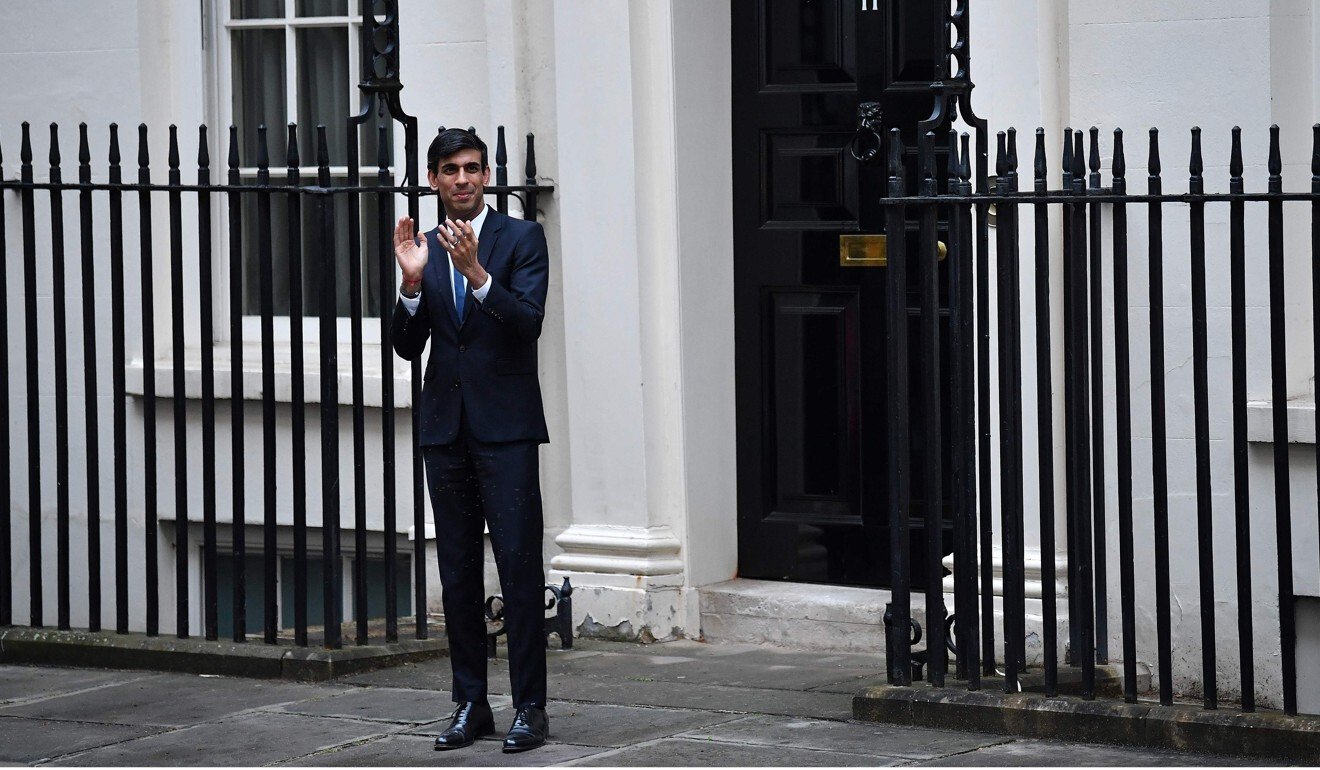
Coronavirus: Britain divided over how to emerge from lockdown
- Prime Minister Boris Johnson is expected to outline his plans to ease curbs on the economy later this week after holding talks with the opposition
- There have been calls for risk assessments and action plans to be published by any business wanting its employees to return to work
The challenge facing the prime minister was clear as trade unions and opposition politicians demanded proper protection for employees at the same time as lawmakers from his Conservative Party urged him to ease the lockdown that has closed shops, pubs and restaurants.
“People rightly need confidence it’s safe before they go back out to work, travel or use public services,” Keir Starmer, leader of the opposition Labour Party, said in a statement. “Mistakes were made at the beginning of this crisis. The government was slow to implement the lockdown, slow on testing and slow to get [personal protective equipment] to frontline workers. We need to learn from those mistakes.”
Persuading people it’s not dangerous to return to work will be crucial to rebooting the British economy as Chancellor of the Exchequer Rishi Sunak looks at ways to unwind the government’s furlough programme, which has already spent £8 billion (US$10 billion) paying the wages of millions of UK workers. Sunak said there won’t be a “cliff edge” when it is expected to finish at the end of June, but warned it could not continue indefinitely.

“I am working as we speak to figure out the most effective way to wind down the scheme and ease people back into work in a measured way,” Sunak told ITV News on Monday. “But as some scenarios have suggested, we are potentially spending as much on the furlough scheme as we do on the NHS for example. Now clearly that is not a sustainable situation.”
Starmer will hold talks with Johnson later this week, before the prime minister is expected to outline his plans to ease curbs on the economy while preventing a second peak of infections. The Labour leader said he favours extending the lockdown and backed a call for risk assessments and action plans to be published by any business wanting its employees to return to work.
The Trade Unions Congress called for “robust” policing of protections by government after it emerged ministers would tell businesses to stagger shifts and enforce social distancing with tape on floors. Seven draft guidance papers covering different business environments have been drawn up to prepare for the switch in guidance, people familiar with the proposals said.
“The documents, that we saw for the first time on Sunday, fall far short of giving any guarantees to workers about their health and safety,” TUC General Secretary Frances O’Grady told Sky News. “The government needs to take this seriously, get the resources right and work with unions to protect people’s safety at work.”

Meanwhile, Graham Brady, who chairs the influential 1922 committee of rank-and-file Conservative MPs, urged Johnson to ease the restrictions and give businesses a timetable for reopening. He said some employees had been “too willing” to stay away from work and take advantage of the government’s job retention programme, under which the Treasury pays 80 per cent of their wages.
“I am sure I am not the only member who has heard from employers who are struggling to fulfil orders because it is difficult to get employees back from furlough,” Brady told the House of Commons on Monday. “We all know how critical it is that they ought to be able to get their workers back so that we make sure that the jobs remain when the furlough period ends.”
By midnight on May 3, 800,000 companies had made claims covering 6.3 million jobs under the furlough programme, Johnson’s spokesman James Slack told reporters. Under the plan, employees must remain tied to their jobs, and must not work for their employer during the period when the government pays their wages.
The programme is part of a suite of measures introduced by Sunak in a blizzard of unprecedented steps to shore up the economy as the UK locked down to prevent the spread of the virus. Businesses urged Sunak to continue the support for jobs into the summer to stave off a wave of bankruptcies and mass unemployment.

